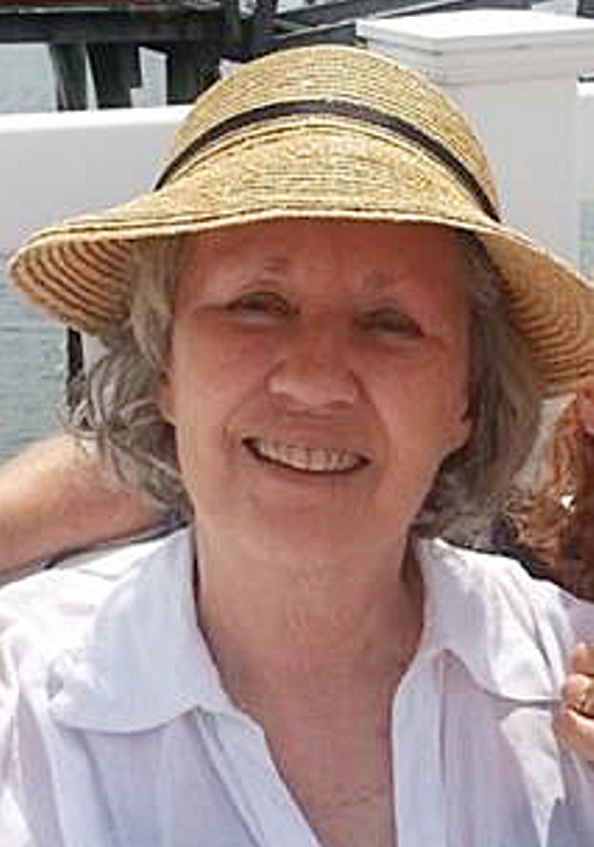Researchers are worried that a rare virus which killed a South Thomaston woman last week may have developed into a new strain that is more likely to be passed to humans.
Marilyn Ruth Snow, a well-known watercolor artist, died last week of Powassan virus after being bitten by a tick in early November. Her daughter, Susie Whittington, said the virus was particularly virulent, with her 73-year-old mother quickly getting weaker, vomiting, developing a high fever and meningitis, lapsing into delirium, becoming paralyzed and requiring a ventilator to breathe.
“She just kept getting sicker and sicker,” Whittingon said, and died at Maine Medical Center on Dec. 18.
Powassan is fatal in about 10 percent of the cases, the U.S. Centers for Disease Control and Prevention said, but only 50 cases have been reported in the U.S. in the last 10 years, and doctors and hospitals are not required to report the illness to federal authorities.
Maine had three cases between 1999 and 2001, said Sheila Pinette, director of the Maine Center for Disease Control and Prevention.
The virus is commonly passed through bites by woodchuck ticks, which feed on small mammals and rodents.
But Charles Lubelczyk, a biologist with Maine Medical Center Research Institute’s Vector-borne Disease Laboratory in Scarborough, said that method of transmission is for one strain of Powassan, and a second strain is passed by deer ticks, which are much more common in Maine and often bite humans.
“The problem is it’s getting in deer ticks and deer ticks are much more abundant and bite people all the time,” he said.
The second strain “is something of a game-changer” that could lead to people getting the Powassan virus much more often, he said.
“People have to really work to come in contact with woodchuck ticks,” while it’s fairly common to pick up a deer tick on a walk in the woods, said Dr. Erin Staples, a medical epidemiologist with the federal Centers for Disease Control and Prevention.
Researchers have so far detected no difference in the symptoms that develop from the two strains, according to Staples. She said the development of a strain carried by deer ticks, combined with a campaign to encourage doctors to test for Powassan, means that reports of the virus are likely to jump in the next few years.
Lyme disease, which is also usually passed by deer ticks, can be treated with antibiotics. But since Powassan is a virus, there’s no cure and doctors can just hope to control the symptoms. The virus often leads to encephalitis and meningitis.
Lubelczyk said Snow was most likely bitten by a deer tick. He said those ticks are active into the fall, and Snow went to an emergency room to get a tick removed from her shoulder on Nov. 9. She started developing symptoms a day later, her daughter said.
Woodchuck ticks are most active in the summer, Lubelczyk said, and most bites by those insects occur in June, July and August, making it unlikely that Snow was bitten by one of those ticks.
She developed the typical “bull’s-eye” rash common in Lyme disease, which is passed by deer ticks, but Whittington said doctors aren’t sure if her mother had both Lyme disease and the Powassan virus.
Lubelczyk said tests on deer and moose indicate that the virus is present in them throughout much of the state. Although the animals don’t actually get sick from the virus, he said, they’re part of the transmission chain that goes through ticks to humans.
He said state researchers plan to increase their surveillance of ticks next year to determine if the second strain has spread to more deer ticks, particularly in the midcoast area.
Pinette said her office also plans to keep a close eye on the virus and she hopes to make it a requirement that doctors report cases to the state as part of an effort to track the spread of Powassan.
She said greater awareness by doctors could also lead many to test for Powassan when they would otherwise assume a patient had contracted Lyme disease.
“It’s out there; we just don’t know the prevalence of it,” she said.
Whittington said her mother apparently picked up the tick on one of her daily three-mile walks.
She knew it was serious when her mother complained, Whittington said.
“She just told me, ‘I’m really sick,’ which she would never tell me,” she said.
Edward D. Murphy can be contacted at 791-6465 or at:
emurphy@pressherald.com
Copy the Story LinkSend questions/comments to the editors.




Success. Please wait for the page to reload. If the page does not reload within 5 seconds, please refresh the page.
Enter your email and password to access comments.
Hi, to comment on stories you must . This profile is in addition to your subscription and website login.
Already have a commenting profile? .
Invalid username/password.
Please check your email to confirm and complete your registration.
Only subscribers are eligible to post comments. Please subscribe or login first for digital access. Here’s why.
Use the form below to reset your password. When you've submitted your account email, we will send an email with a reset code.